Recently the Uganda Tourism Board led a process of branding Destination Uganda. When the brand “Explore Uganda, the Pearl of Africa” was unveiled to the world, a few people wondered exactly what was there to explore in Uganda. Some even thought that they knew the country so well that they did not have to explore anything new. But they were wrong. Uganda never ceases to amaze, and there’s so much to explore....
Truths you may not Know about Matoke
Many people look at motoke as a plant while others see it as merely food. And others still ask what this is all about! In Buganda matoke is much more than a plant and food. It is one of the most cherished aspects of Buganda culture. Matoke were here long before the arrival of European explorers. It is believed that it was in the rein of Kintu, Buganda’s first revolutionary King after the fall of Ttonda dynasty, that Matoke was introduced. Since that time matoke have been a part of the Baganda, for now close to 800 years.
In Buganda there are different varieties of matoke, although there could be sub-varieties within certain varieties. Generally, there is the matoke for eating as steamed food, matoke for eating as ripe bananas, matoke for making brew and matoke for eating as a snack.
When a baby is born, a brother or sister will also be born in the banana plantation. The placenta, can never be dumped anywhere in Buganda. If the baby is a girl, the placenta (second child) will be carefully placed under a banana variety called Natitembe. And if the baby is a boy, the second baby will be placed under embidde, this type of matoke is known as male matoke. From this moment, everyone will have a brother and sister living in the banana plantation. For this reason, the plantation is part of the family and must be looked after and given everything it wants!
When the head of the home (Ssemaka) dies, as a rule it is the banana plantation to receive the news first. This is because the deceased’s brother is said to be living there and must be informed first. How is the news delivered? A special ritual is performed, and even when a bunch is harvested, it is cut tenderly, with love and sorrow – of course with certain comforting words. Usually, before burial, the deceased’s children must first clean or wash the body. Here, they use the inner stem of the banana tree or what you would call the spine (ekinyirikisi)! Why, because brothers and sisters live in the plantation and must say goodbye as well. Immediately after burial, hands are washed with the bark of a banana tree – not water!
The male matoke is particularly used to make brew. Drinking alcohol is a cultural practice in Buganda. Men always gathered in the evenings after work to discuss a number of issues. Those who had personal problems would particularly need to first have a few sips before gathering the courage to share with their friends. And the friends would need some booze to be able to boldly tell off their friends. Indeed, alcohol was a requirement on all social functions such as weddings, introductions, and celebration of the last funeral rights.
One of the most important people in Buganda is a muko (son in law). It was a must for him to come along with some alcohol (ekita kyo mwenge) on the day his fiancé officially introduced him to the family. And this guy, along with his entourage would feast on luwombo (special source prepared in banana leaves) and hot steamed matoke. The family and guests at the function would later feast on steamed matoke, of course with local brew (omwenge), and some drums making everyone happy.
In day to day lives, matoke provided the leaves for wrapping food for cooking. Children would fetch water from wells and cover their calabashes (or jerry cans) with banana flowers (empumumpu). Firewood was collected in forests and tied with banana fibres before it was carried home on the head. The banana leaves were coiled to make enkata (coil) for protecting the head against the hard wood. If anyone bought anything from the market, the packaging was done in banana leaves. The pot containing drinking water in the house was seated on a coil made out of banana fibres and was covered with the same.
When boys wanted to play, they made soccer balls out of banana fibres. The girls made ropes for skipping, balls for okwepena (local game) and dolls to play with. The herdsmen made their animal ropes using banana fibres while hunters used the same to make traps for small animals. Ladies used banana leaves and fibres to make baskets for carrying food and so many other things. If you wanted a mango from a tree, you only needed a banana fibre and a stone to make a sling. If any family member suffered from flu and nostrils were blocked, the kinyirikisi was useful medicine. It was useful in treating small babies with blocked noses.
Generally, you can see that matoke was inseparable from the Baganda. Every home must have had a banana plantation starting right at the end of the courtyard. And everyone knew good methods of looking after the plantation. All young girls were taught how to cook matoke as part of upbringing. These practices are still prevalent in a few Baganda homes today. Modernity is eating away all of these practices. Slowly the culture is dying. This is why Sights and Sounds of Africa safaris is committed to restoring these beautiful but waning cultural practices. Entanda Cultural Adventure is one place where you can see how far this journey has come and you can join us to celebrate these cultural practices.
Useful proverb derived from matoke: Abalungi ndagala nnamu; teziggwa mu lusuku. Translated as: Beautiful people are like good banana leaves; they can never be completely finished from a banana plantation.
Further Reading
If you have been to Fortportal, perhaps you have seen those magnificent tall eucalyptus trees in the Mpanga valley opposite the Toro Golf course. Those trees were planted in 1954 the very day Queen Elizabeth visited Tooro and perhaps after visiting and naming after herself Queen Elizabeth National Park.
If you have ever studied African history, there is a big chance that you learnt about the Chwezi dynasty! You must have learnt that these guys were Demi gods, able to do things that no one else did. A good example is here.


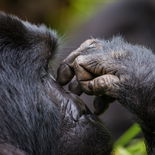
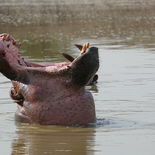
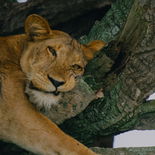
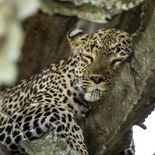
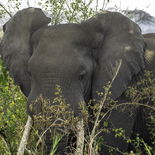

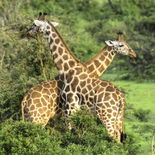
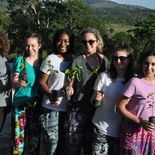
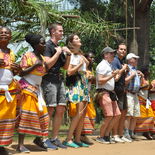

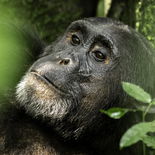
Share This Post